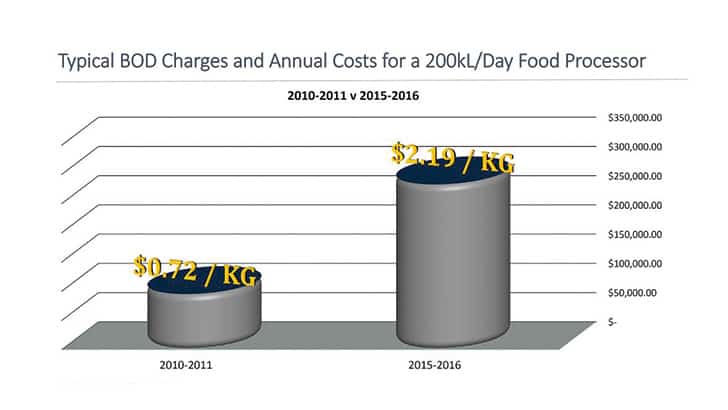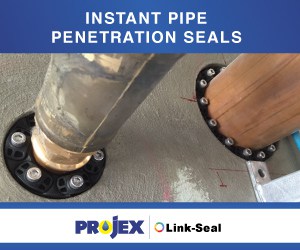by Mathew Pugh, Director, Hydroflux Industrial
But how closely are you monitoring your wastewater discharge costs?
The media, with its focus on news for general public consumption, has been full of coverage of the growing cost of electricity.
As a consequence, the public in general and managers in most industries in particular are well aware of increases in the cost of electricity. Both have taken steps to reduce their power consumption and, in the case of managers, the impact on their bottom line.
But members of the general public do not pay directly for the cost of the pollutants discharged into their wastewater. Thus the massive increase in the cost of discharging wastewater pollutants has not received any coverage in the media, and has largely gone unnoticed.
Only the most diligent of managers will be aware of just how massively these costs have gone up and/or taken any action to mitigate this cost.
By way of example, if we look at Sydney Water’s charges, the actual increases are materially very significant.
As Sydney Water’s models are often used as the benchmark for other water authorities and councils throughout Australia, industry should take note and take action.
As an example, five years ago, a typical food and beverage manufacturer discharging a couple of hundred thousand litres a day was paying just $0.72 per kilogram of BOD discharged. Today that manufacturer is paying a whopping $2.19 for that same kilogram.
That’s a massive 300 per cent increase in just five years!
In annual terms, the charges for this single pollutant will have gone from $95,000 to $282,000.
Given that many factories discharge five to ten times this quantity, this makes the 35 per cent increase in the cost of electricity over the same period look minuscule in comparison.
To make matters worse, this bill shock for pollutants is often masked in authority agreements by complex formulas, setting rates based on milligrams per litre and then converting to kilograms discharged.
What can you do?
Most industries discharging these volumes of water will have, or should have, some form of wastewater treatment plant. These plants often either do not run at their optimum and, like other complex process units, need a professional to review the operation on a regular basis.
Optimisation and/or minor upgrades can significantly reduce both the milligrams per litre (thus dollars per kilogram rate) and the total number of kilograms discharged.
Massive savings can often be achieved with minimal expenditures.
Mathew Pugh is a member of the Board of Directors of Hydroflux Industrial. He has dedicated his career to the water treatment industry and has held a diverse range of roles from commissioning engineer, project manager, technical support, contracts administration and sales and marketing, and has been heavily involved in hundreds of industrial wastewater treatment projects.
About the Hydroflux Group
The Hydroflux Group operates in a number of sectors via unified complementary businesses, each engaged in the supply of specialist professional services and products to the water, wastewater and sustainability market. Hydroflux Pty Ltd is an Australian private company.
Who can you contact?
The Hydroflux Group is home to some of the leading wastewater specialists in Australia. Collectively these specialists have more than 200 years of experience in the local wastewater industry.
They will provide you – free of charge – with a professional preliminary review of your wastewater plant and recommendations. So what have you got to lose?
Hydroflux can be contacted on 1300 417 697.


















